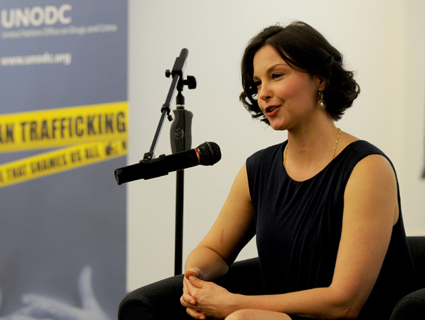So much for that.
On Wednesday, actress and public health activist Ashley Judd ended months of public speculation about her political future and announced she would not challenge Sen. Mitch McConnell (R-Ky.) next fall. Judd, who lives outside Nashville and would have had to establish residency in the Commonwealth, cited family commitments in an announcement on Twitter:

The case for Judd, on its surface, was pretty straightforward. She is young; capable of raising vast sums of money; and sufficiently beloved in the Bluegrass that Steve Beshear, the state’s Democratic governor, calls her “Kentucky’s first daughter.” McConnell, a fifth-term Republican, is the least popular senator in a chamber that currently includes Robert Menendez. His approach to legislating often seems like a manifestation of his own tortoise-like features—a plodding process that reached its apotheosis last December when he filibustered his own bill.
After hinting in January that she was seriously considering entering the race, Judd quickly became a conservative target. Karl Rove’s American Crossroads launched a web ad mocking her Tennessee residency and liberal views, and Republican organizations touted her previous statements on mountain-top removal coal mining and the human rights abuses associated with Apple products. Judd, a three-time rape survivor whose international work deals with victims of sexual abuse, also became a subject of conservative mockery for her frequent discussion of rape—a cautious reminder that, a year after Todd Akin, Republicans still have trouble keeping their feet out of their mouths when they talk about the issue.
With Judd out of the picture, Democrats’ best hope may be Kentucky secretary of state Alison Lundergan Grimes, a 34-year-old first-term officeholder with close ties to the Clintons. (The former president has reportedly encouraged Lundergan Grimes to consider running.)













